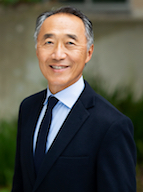Innovative Research by Dr. David M. Young Featured in The Chronicle of Higher Education

Innovative research by Professor David M. Young, MD is featured in a special report in The Chronicle of Higher Education examining the extent to which universities can actually transform their discoveries into tangible solutions benefiting society at large.
The Chronicle report highlights a UCSF Department of Surgery effort led by Dr. Young, in collaboration with UC Berkeley engineers, to develop an electronic "smart bandage" that will prevent bedsores and warn of dangerous infections. The report highlights the growing efforts by universities to translate discoveries into marketable products and the concomitant need for new structures to incentivize and support faculty working across disciplines to solve problems with societal impact. Historically, such efforts have not been rewarded in academia's publication-focused promotion structure.
Dr. Young, a professor of surgery at the University of California at San Francisco, leads a team making a product -- an electronic bandage that could alert patients to potentially fatal infections. He is being helped by multi-million dollar federal programs, and the work is expected to turn into a company and, hopefully, a profit for his institution.
The academic world seems increasingly enthused to help derive real-world benefit from the federal government’s $40-billion annual expenditure on university research. The electronic bandages could help prevent bedsores, which affect some 2.5 million people a year in the United States at an estimated cost of $11 billion.
Universities and their researchers now face heavy and growing pressure to financially justify their decisions. And that can steer them away from choices that can’t be connected to definable profits, grants, or publications with known academic value. Universities and funders of science could respond to those expanded market pressures by rewarding scientists who work societal problems all the way through to a solution.
The Department of Surgery's Surgical Innovations initiative is working to lower the barriers for creative faculty like Dr. Young to translate their medical device ideas into real-world products that improve patients' lives. By providing seed grants, facilitating trainee involvement, and promoting a culture of innovation in the Department, the program aims to help balance out the traditional academic reward structure to allow UCSF surgeons to be at the forefront of pioneering new surgical technologies into patient care.
Read full article at The Chronicle of Higher Education (available to subscribers)